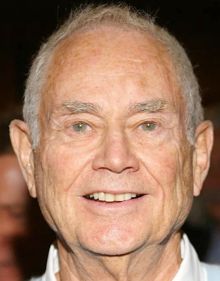Related Research Articles
The Academy Award for Best Documentary Feature Film is an award for documentary films. In 1941, the first awards for feature-length documentaries were bestowed as Special Awards to Kukan and Target for Tonight. They have since been bestowed competitively each year, with the exception of 1946. Copies of every winning film are held by the Academy Film Archive.
Mark Jonathan Harris is an American documentary filmmaker, writer, and educator known for his award-winning work in the documentary genre. Over the course of his career, Harris has earned three Academy Awards and numerous accolades for his contributions to filmmaking and education. He served as a Distinguished Professor and Head of Advanced Documentary Production at the USC School of Cinematic Arts, where he taught from 1983 until his retirement in 2023. Harris is also an accomplished author, having written five children's novels and a collection of short stories.
Charles Eli Guggenheim was an American documentary film director, producer, and screenwriter. He was the most honored documentary filmmaker in the academy history, winning four Oscars from twelve nominations.
Passion Pictures is a British film production company established by Andrew Ruhemann in 1987. The company has studios in London, Melbourne, Paris, Toronto, and New York City.

The 40th Academy Awards were held on April 10, 1968, to honor film achievements of 1967. Originally scheduled for April 8, the awards were postponed to two days later due to the assassination of civil rights leader Martin Luther King Jr. Bob Hope was once again the host of the ceremony.

Lawrence Turman was an American film producer. He was best known for serving as a producer of The Graduate

Festival is a 1967 American documentary film about the Newport Folk Festivals of the mid-1960’s, and the burgeoning counterculture movement of the era, written, produced, and directed by Murray Lerner.
In Beaver Valley is a 1950 American short documentary film directed by James Algar. The film was produced by Walt Disney as part of the True-Life Adventures series of nature documentaries. It won an Oscar in 1951 for Best Short Subject (Two-Reel). At the 1st Berlin International Film Festival it won the Golden Bear (Documentaries) award.

Seawards the Great Ships is a 1961 British short documentary film directed by Hilary Harris. It won an Oscar in 1962 for Best Short Live Action Subject, the first Scottish film to win an Academy Award.
Robert Kennedy Remembered is a 1968 American short documentary film produced and directed by Charles Guggenheim. In 1969, it won an Oscar for Best Short Subject at the 41st Academy Awards.
Toward Independence is a 1948 American short documentary film about the rehabilitation of veterans with spinal cord injuries. Army Surgeon General Raymond W. Bliss received the award. In 1949, it won an Oscar for Documentary Short Subject at 21st Academy Awards. The Academy Film Archive preserved Toward Independence in 2005.

A Chance to Live is a 1949 American short documentary film directed by James L. Shute, produced by Richard de Rochemont for Time Inc. and distributed by Twentieth Century-Fox. It is part of The March of Time series and portrays Monsignor John Patrick Carroll-Abbing building and running a Boys' Home in Italy.
The Alaskan Eskimo is a 1953 American short documentary film produced by Walt Disney. It was the initial film in Disney's People & Places series. In 1954, it won an Oscar for Documentary Short Subject at the 26th Academy Awards.
To Be Alive! is a 1964 American short documentary film co-directed by Francis Thompson and Alexander Hammid. The film is notable for its use of a multi-screen format and for winning the Oscar for Documentary Short Subject at the 38th Academy Awards.
A Year Toward Tomorrow is a 1966 American short documentary film about the Volunteers in Service to America, directed by Edmond Levy. In 1967, it won an Oscar for Documentary Short Subject at the 39th Academy Awards.
Harvest is a 1967 American documentary film written, produced, and directed by Carroll Ballard for the US Information Agency. It was nominated for an Academy Award for Best Documentary Feature. The film portrays the American farm and farmer at harvest time, beginning in Texas with the first cutting of winter wheat, and following the season north to the Canada–United States border. It was narrated by John Carter.
Monument to the Dream is a 1967 American short documentary film about the Gateway Arch National Park directed by Charles Guggenheim and narrated by Paul Richards. At the time of the film's production, the park was known as the Jefferson National Expansion Memorial. It was nominated for an Academy Award for Best Documentary Short.
While I Run This Race is a 1967 American short documentary film about poverty in the United States directed by Edmond Levy. It was nominated for an Academy Award for Best Documentary Short.

Mitchell W. Block was an American filmmaker, primarily a producer of documentary films.
The Witness: From the Balcony of Room 306 is a 2008 documentary short film created to honor the 40th annual remembrance of the life and death of Martin Luther King Jr. Directed by Adam Pertofsky, the film received a 2008 Oscar nomination in the "Best Documentary Short Subject" Category at the 81st Academy Awards.
References
- ↑ http://www.samkarp.net/healed-the-film/crew.html Archived July 24, 2011, at the Wayback Machine short bio of Harris
- ↑ "New York Times: The Redwoods". Movies & TV Dept. The New York Times . Baseline & All Movie Guide. 2011. Archived from the original on May 20, 2011. Retrieved May 26, 2008.
- ↑ "The 40th Academy Awards (1968) Nominees and Winners". oscars.org. Retrieved June 1, 2019.